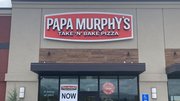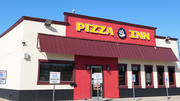Article
Papa John's lessons about founders, spokespersons, media training
Where will Papa John's go from here as a pizza brand and what should pizza restaurateurs take away from the embattled brand's problems about media training? Two experts offer their takes.

July 16, 2018 by S.A. Whitehead — Food Editor, Net World Media Group
As Papa John's CEO Steve Ritchie said in his message to the public late Friday, "Papa John's is not an individual. Papa John's is a pizza company."
The statement followed the brand's implosive week following a Forbes article in which Papa John's one-time media training company, Laundry Service, relayed a training call in which founder and former CEO John Schnatter allegedly used a racial slur and made other horrific comments about African Americans.
The letter, like similar moves to distance the brand from its controversial originator, was a smart move, given the outrage unleashed against the Louisville-based pizza company after last week's news. But where will Papa John's go from here?
Clearly, actions already taken to end its spokesperson agreements and other roles with Schnatter were a start, as was the formation of a special action committee on the brand's relationship with its founder, and initiatives involving company culture and racism. But, Pizza Marketplace wanted to know more about possible directions Papa John's may take from here.
Brand strategy consultancy Sol Marketing and its CEO Deb Gabor said in her view the next step for Papa John's must be to repair its relationship with its customers and other audiences, something that has been breached by the words its founder is alleged to have spoken on the conference call with the brand's media training company at that time, Laundry Service.
"Papa John's has a lot of repair work to do to its relationship with customers," Gabor said in an interview with Pizza Marketplace. "It was already losing ground with customers before this most recent incident.
"As a first step, the company should treat this situation like a brand crisis. First, they need to show regard for the people who were hurt by Schnatter's comments. The company (not just Schnatter, who apologized briefly for his comments), should apologize in a sincere and direct way and assume responsibility for ensuring that something similar doesn't happen again.
"The company should also use this crisis as an opportunity to authentically convey the positive values and beliefs that the organization DOES stand for and use this as an opportunity to share with its stakeholders a plan for how it plans to reinforce those values to the world through its actions. ....Brands that make it through these public relations firestorms are generally organizations that have strong corporate cultures and well-understood, relevant, and emotionally connected customer bases that engender a high degree of loyalty."
The media training session event that set fire to the brand
How the story will unfold with Papa John's remains to be seen, though the actions the brand has taken over the last four days indicate it is energized and already beginning that process. But, the fact is it was already trying to rein in its founder when the whole situation reported last week developed in the first place.
Schnatter was, according to the Forbes article, in the midst of media training with an agency, Laundry Service. Laundry Service did not return requests for an interview or other information from Pizza Marketplace last week, but the subject of media for brands, especially those with strong easily identified spokespeople or founders, remains critical to the conversation for restaurant brand leaders.
Los Angeles-based media trainer, Brad Ritter, of Brad Ritter Communications, works with many brands nationally on media training to help teach executive how to conduct effective interviews and best represent their companies, often before pivotal events for the brand or when the company is under fire. In fact, many brands provide media training and coaching on an ongoing basis since media tactics and brand situations change.
We wanted to know more about how a veteran media trainer viewed the situation that developed with Papa John's as well as the overall purposes for this type of executive coaching in general, so Ritter fielded a few questions from Pizza Marketplace.
Q: Why would you say that Schnatter allegedly felt he could refer to some of the horrific things he did on that conference call concerning African Americans?
A: It's hard to speculate ... but all we need to do is look at his history of making controversial comments, his colorful personality and apparent desire for publicity. Charisma is a double-edged sword; it can make a career and it can kill one.
Q: Is there any importance in having executives undergoing training like this prepped in advance of its absolute importance by the board or other executives?
A: The news these days is filled with costly executive gaffs that go viral, which should serve as a warning to boards. Properly prepping leaders for investor meetings, media interviews and public exchanges is increasingly important but often neglected. In today's hyper-busy world, too often the inclination is to "wing it."
Boards also have the ability to control who speaks for the company. While the CEO is expected to be the face of the brand, not every leader is well suited — or relishes — that role. There may be others in the organization who would make better spokespersons. Media training sessions often are used to help companies decide who should — and who should not — be a spokesperson.
Q: How would you have handled this situation on the conference call with a client?
A:As a public relations advisor, I have a responsibility to give clients my best advice in the right environment. Rarely has a client suggested a strategy or said something I thought would be detrimental to its business or reputation. When it does happen, I find an opportunity to explain why it could be problematic and offer alternatives, whether it's at the time or in a follow up conversation.
Q: Have you had clients that shadow this type of behavior and what have you done in those cases?
A: Fortunately, I've never encountered a client prone to using such offensive language. However, during training and prep sessions, spokespersons may say things that are unclear, wrong or insensitive. In many instances, they don't realize it until they review the video. ...
The fact that he (Schnatter) participated in the training suggests he understood the need to be more careful with his words. Often it takes a major "media mishap" to convince leaders to undergo media training.
Photo: iStock
About S.A. Whitehead
Pizza Marketplace and QSRweb editor Shelly Whitehead is a former newspaper and TV reporter with an affinity for telling stories about the people and innovative thinking behind great brands.
 ChatGPT
ChatGPT Grok
Grok Perplexity
Perplexity Claude
Claude








